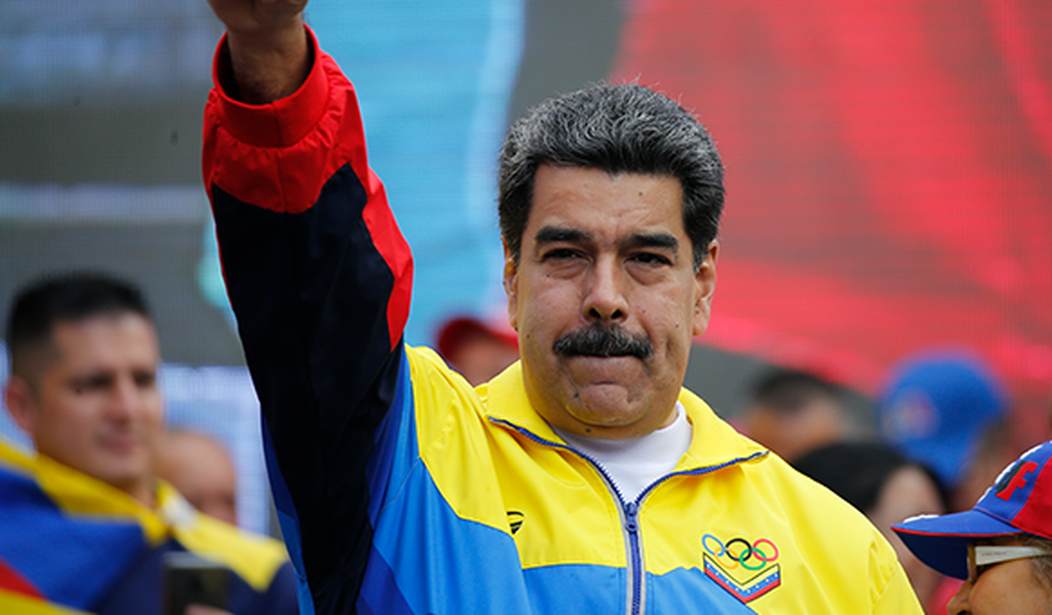My colleague Sarah Anderson has an excellent analysis of Donald Trump's actions in the Caribbean and how they represent a "New Monroe Doctrine."
It might be a "new" interpretation of the policy, but its goal is exactly the same: to keep foreigners from meddling in our "sphere of influence."
Specifically, China. According to The Telegraph, administration insiders have dubbed the overall plan the “Donroe Doctrine," and its goal is to rid the region of growing Chinese influence.
To that end, the Donroe Doctrine calls for ending Nicolás Maduro’s illegitimate rule in Venezuela and countering China, which has invested millions in Venezuelan oil and infrastructure projects, with more promised."China's other investments in Central and South America through its Belt and Road Initiative (BRI) offer to finance infrastructure projects like roads, ports, and airports in exchange for trade concessions. Whittling down their influence is a primary goal of the doctrine.
Russia has been selling Maduro Sukhoi fighter jets, helicopters, tanks, and air defense systems, but Moscow lacks the means to make an economic impact in the region.
Venezuela, which has the biggest oil reserves in the world, is now in the crosshairs. The recent deployment of the Gerald R. Ford Carrier Strike Group to the Caribbean will give the U.S. more striking power in the region than at any time since the Cuban Missile Crisis.
“The only thing you could use the carrier for is attacking targets ashore, because they are not going to be as effective at targeting small boats at sea,” Bryan Clark, a senior fellow at the Hudson Institute, told The Atlantic. “If you are striking inside Venezuela, the carrier is an efficient way to do it due to the lack of basing in the region.”
There are already roughly 6,500 Marines and sailors in the region, operating from eight Navy vessels, as well as 3,500 troops nearby. Once the Ford arrives, the U.S. will have roughly as many ships in the Caribbean as it used to defend Israel from Iranian missile strikes this summer. The carrier strike group also provides far more firepower than is necessary for the occasional attack on narco-trafficking targets. But the ships could be ideal for launching a steady stream of air strikes inside Venezuela.
Maduro is probably not long for this world. There's a $50 million bounty on his head, and the CIA has been unleashed, allowed to conduct covert operations in the country. Be sure to send flowers after Maduro's "unfortunate accident."
However, that won't completely solve the Venezuelan problem. Maduro will be replaced by one of his generals or a close aide who will recast Maduro as a martyr. That's why the aircraft carrier and massive numbers of planes and Marines will be floating just offshore. It's going to be regime change or nothing.
I can't imagine all that firepower has been assembled just for show.
The antidrug mission has been “a pressure campaign to see if the regime will crack,” Elliott Abrams, who served as special representative for Venezuela during the first Trump administration, told us. Among the aims of the strikes is to prompt military defections within the regime, which could in turn lead to its demise. “The idea is that officials will say to themselves, Maduro will fall, but I don’t have to fall with him,” Abrams said. During other Venezuelan political crises—including in 2014 and 2019—there have been prominent defections. But this time, the regime has held together—so far, at least.
None of the strikes has landed in Venezuelan territory, either at sea or on land. All have been in international waters. Maduro, an autocrat who stole last year’s election, has written letters to “His Excellency” Trump, pleading for de-escalation. He’s laid peace offerings in the form of oil and riches at the White House’s doorstep. But the one thing Maduro seems unwilling to do is relinquish power, and it doesn’t look like anyone in his government will make him. And so earlier this month, the Trump administration told its last diplomat in Venezuela to pack his bags.
Beyond Venezuela, Guyana and Suriname, small South American states neighboring Venezuela, have recently discovered oil reserves that China has pounced on and invested heavily in. Earlier this year, the U.S. signed a defense pact with Guyana, which fears Maduro's threats to revive a border dispute that would grant Venezuela about 2/3 of Guyana's territory.
China is angry because it's already poured more than $1 billion into exploiting Guyana's oil fields and investing in other infrastructure projects. For all its economic might, China still cannot project its power much beyond its own neighborhood. That's an advantage that the U.S. will exploit in Central and South America as the Donroe Doctrine looks to check China's growing influence in the region.










